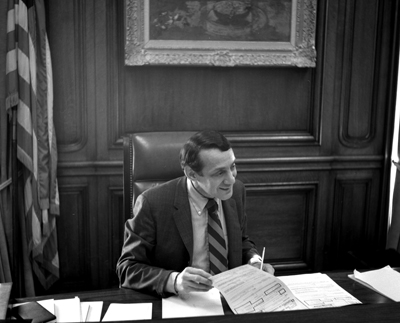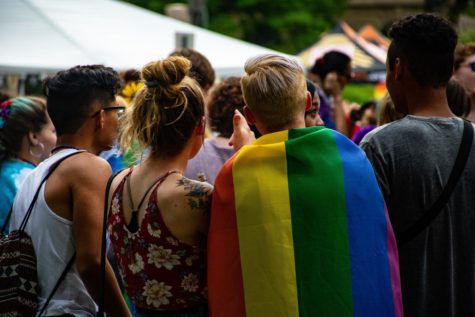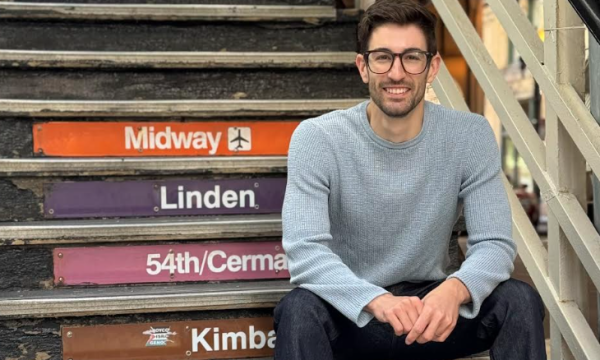Pritzker signs Illinois LGBT+ history requirement
On Aug. 9, Gov. J.B. Pritzker signed legislation which says public schools in Illinois must include curriculum on prominent LGBT+ figures in history, starting July 1, 2020. OPRF is working this year to assess their history curriculum to prepare for the new changes in regards to the honors tracking program. During this process, a team of history teachers will also work on finding ways to include LGBT+ history. The impact of activists such as Marsha P. Johnson, politician Harvey Milk, or even singer Freddy Mercury could be taught in U.S. history classrooms next year.
The law does not specify quantitative requirements for the new academic standards. At OPRF, history teachers are not given specific day-to-day curriculum but must make sure their students are able to make claims about overarching questions that relate to the development of history, such as “why is the modern world unequal?”
The head of the History department, Amy Hill says history teachers can “find a natural way to include the contributions” of LGBT+ activists to answer these overarching questions as they see fit. Teachers will decide how to include the positive contributions of LGBT+ figures to help answer these questions, as long as it helps students learn how to analyze and synthesize historical arguments. The school will also receive funding to purchase history textbooks which are inclusive of the standard.
Over the last 50 years, a dramatic shift in attitude regarding LGBT+ issues has taken place in America. Gallup, an analytics company who conduct worldwide polls, demonstrated in 1977, 56 percent of Americans believed lesbian and gay people should have an equal opportunity at employment. By today, 93 percent of Americans agree in objective hiring for LGBT+ applicants. Similar statistics regarding opinions on same-sex marriage, adoption for gay couples, and legalization of intimacy have increased dramatically in the last several decades.
Explaining the shift in attitude is now a part of American history: history teachers must include the names of LGBT+ activists who contributed to this conversation. Teachers have always been allowed to bring up topics surrounding LGBT+ history in English, History, Psychology, or any course in which it may be relevant. The team of teachers assessing the history courses is made up of teachers and administration, the first phase of curriculum development. The team is observing how much, if any LGBT+ history is already being taught in classes. However, the state listening to the voices of local activists and implementing this academic standard holds significant meaning for students.
Ellie Sigel, a junior who identifies as bisexual, say it is “really great that young LGBT people get to see themselves represented in the classes they take and see their identities in a 3-dimenstional way.” The state-wide standard means every student will see the contributions of LGBT+ activists; this exposure to positive activists not only means representation but could also create space for more acceptance from cisgender and straight students.
Studies conducted by GLSEN, an organization advocating for LGBT+ education, says in 2017, 20 percent of students were taught about LGBT+ history in school, and in those schools, LGBT+ students experience lower rates of verbal harassment. Hill says, “It’s also about, deconstructing the heternormative setting so that kids who might identify as straight or cisgender, are also recongnizing, “Hey, that’s just my experience, (but) its not what everyone else experiences.’
The legislation struggled to make its way to Pritzker’s desk, with pushback from several hate groups and religious organizations. However, Hill says she’s not concerned about any negative responses from the community and is optimistic this will help increase acceptance from non-LGBT students. The sponsor of the bill, Sen. Heather Steans, says “one of the best ways to overcome intolerance is through education and exposure to different people and viewpoints.”

Harvey Milk was first openly gay elected official in the history of California. Except students to learn about Milk in an LGBT+ history class.





